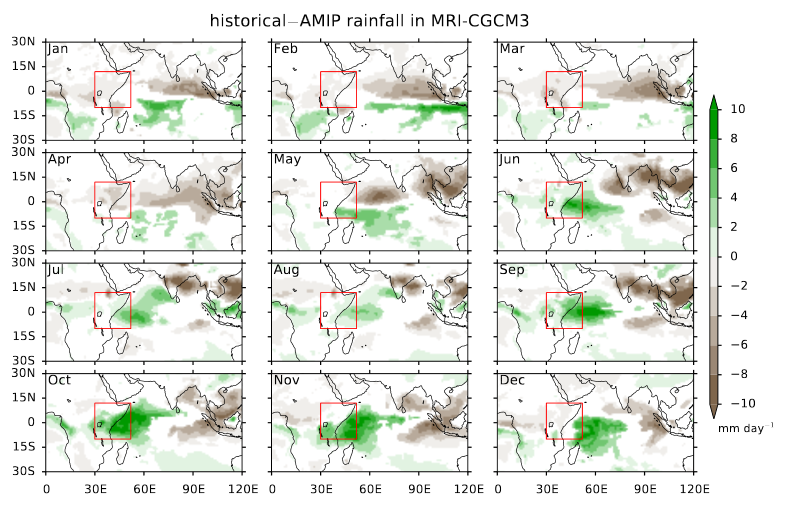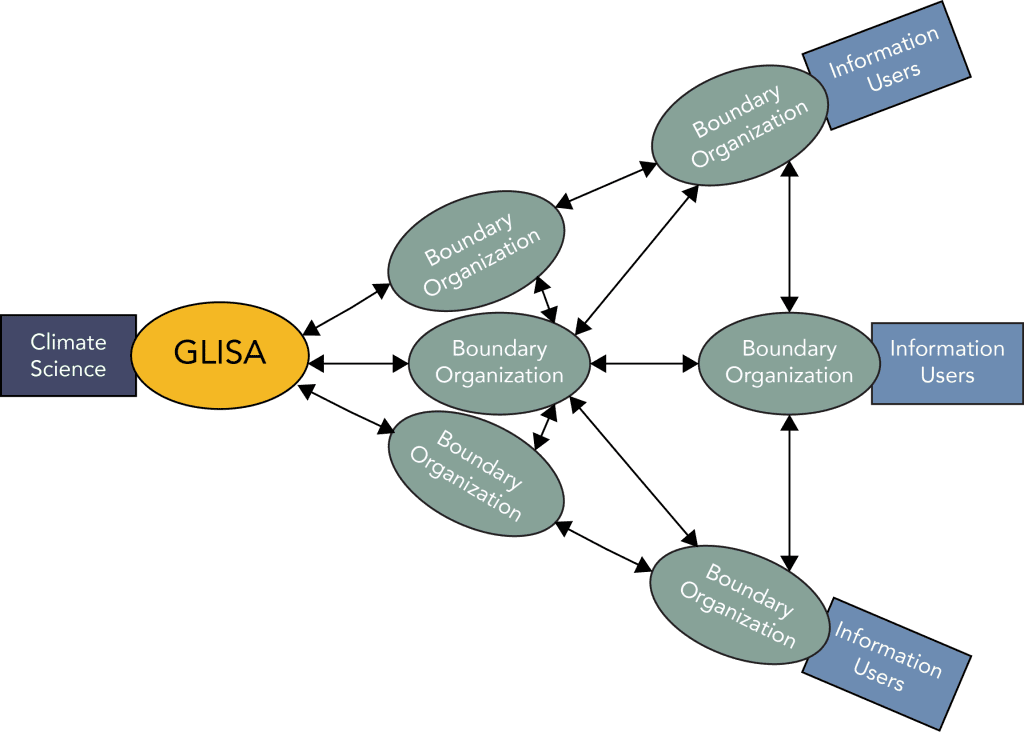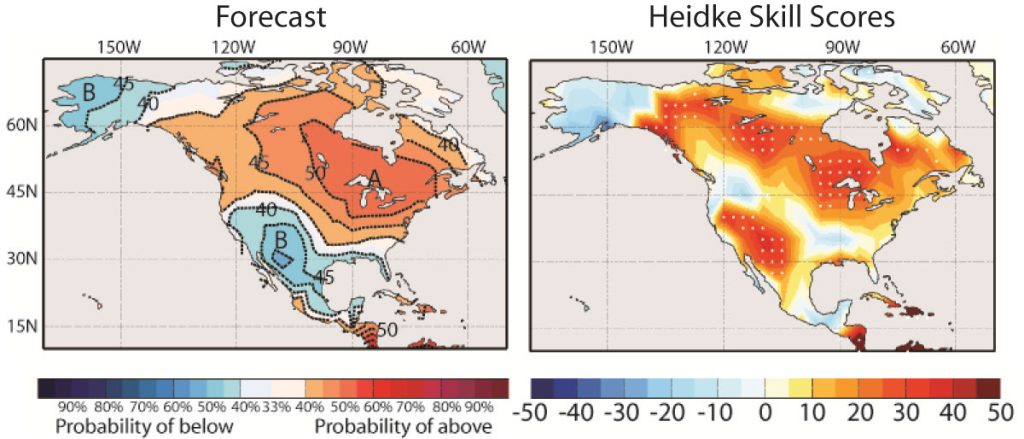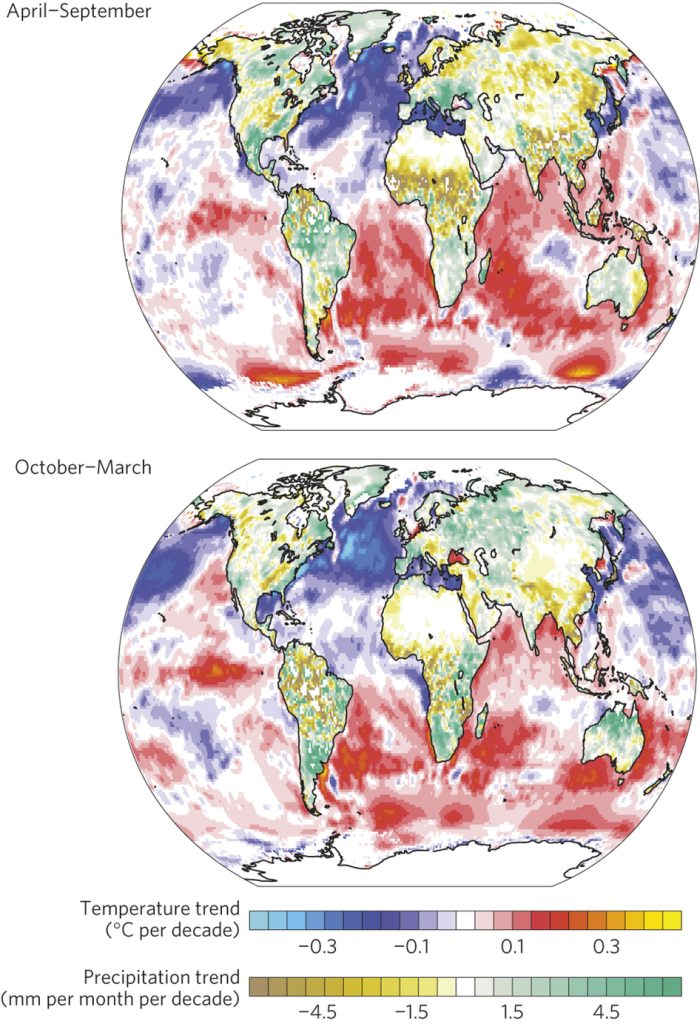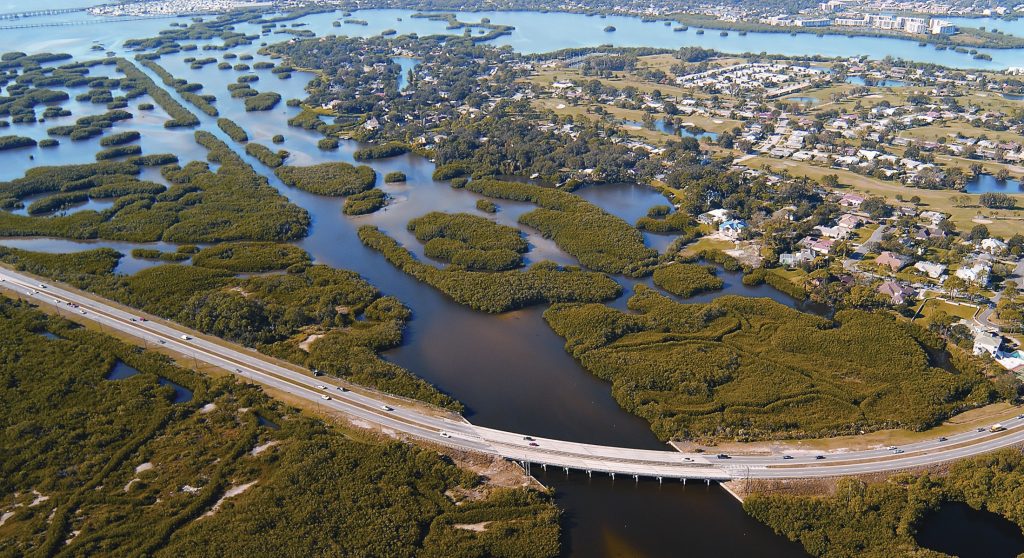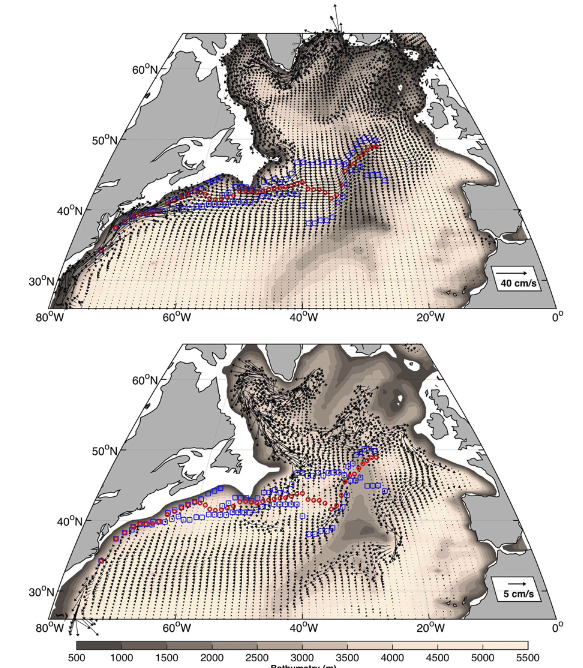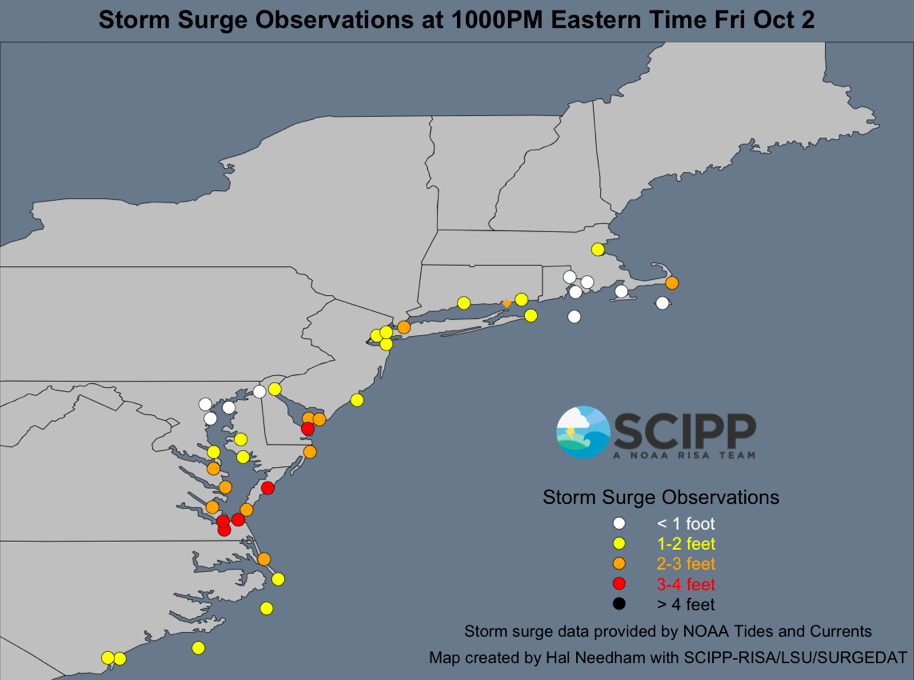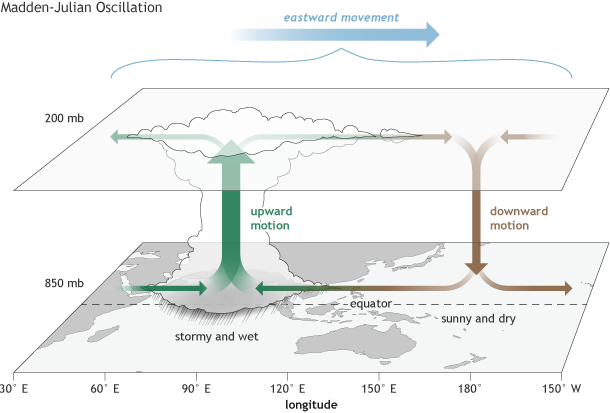Climate models bias the rains down in Africa, but there’s something that 100 model runs or more could do
If Toto had been a group of climate modelers instead of a band, the song “Africa” might have informed listeners that East Africa has two rainy seasons–long rains from March to May and short rains from October to December.


